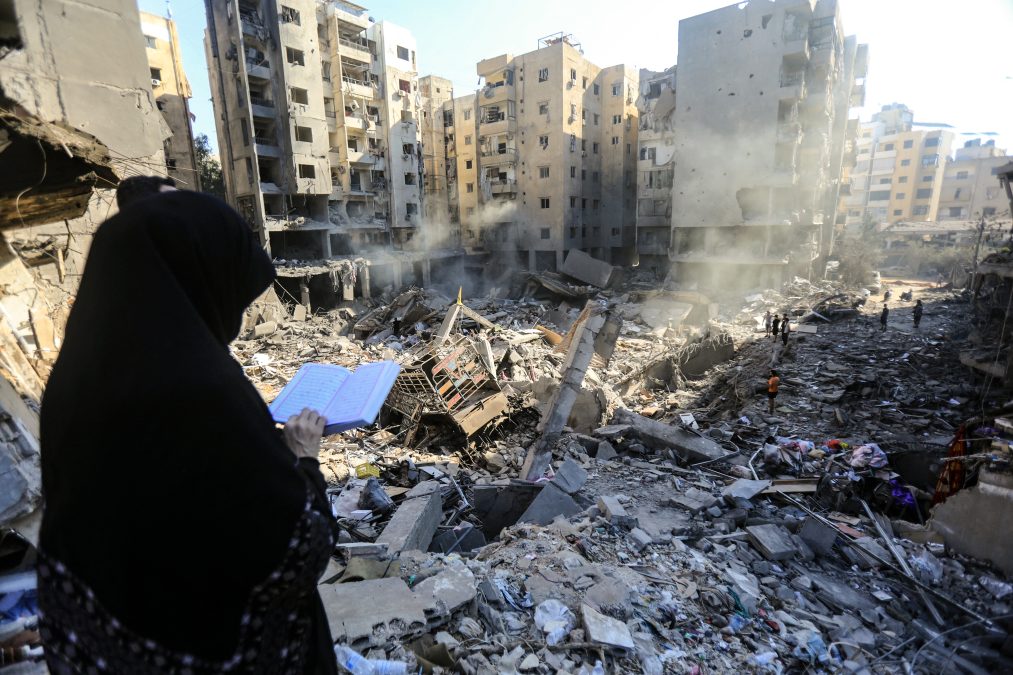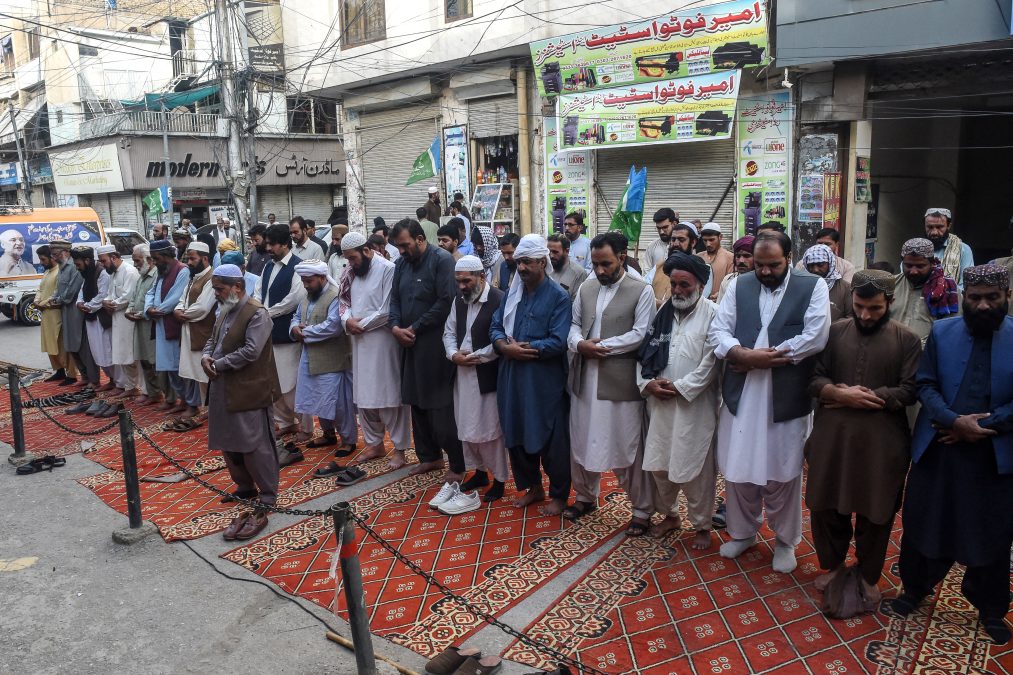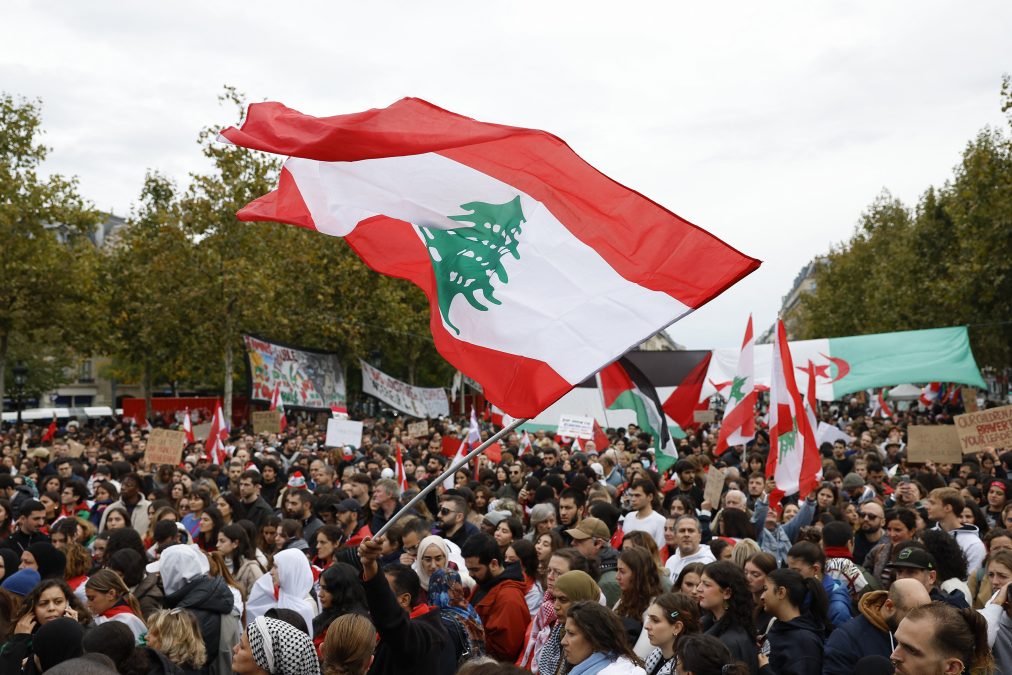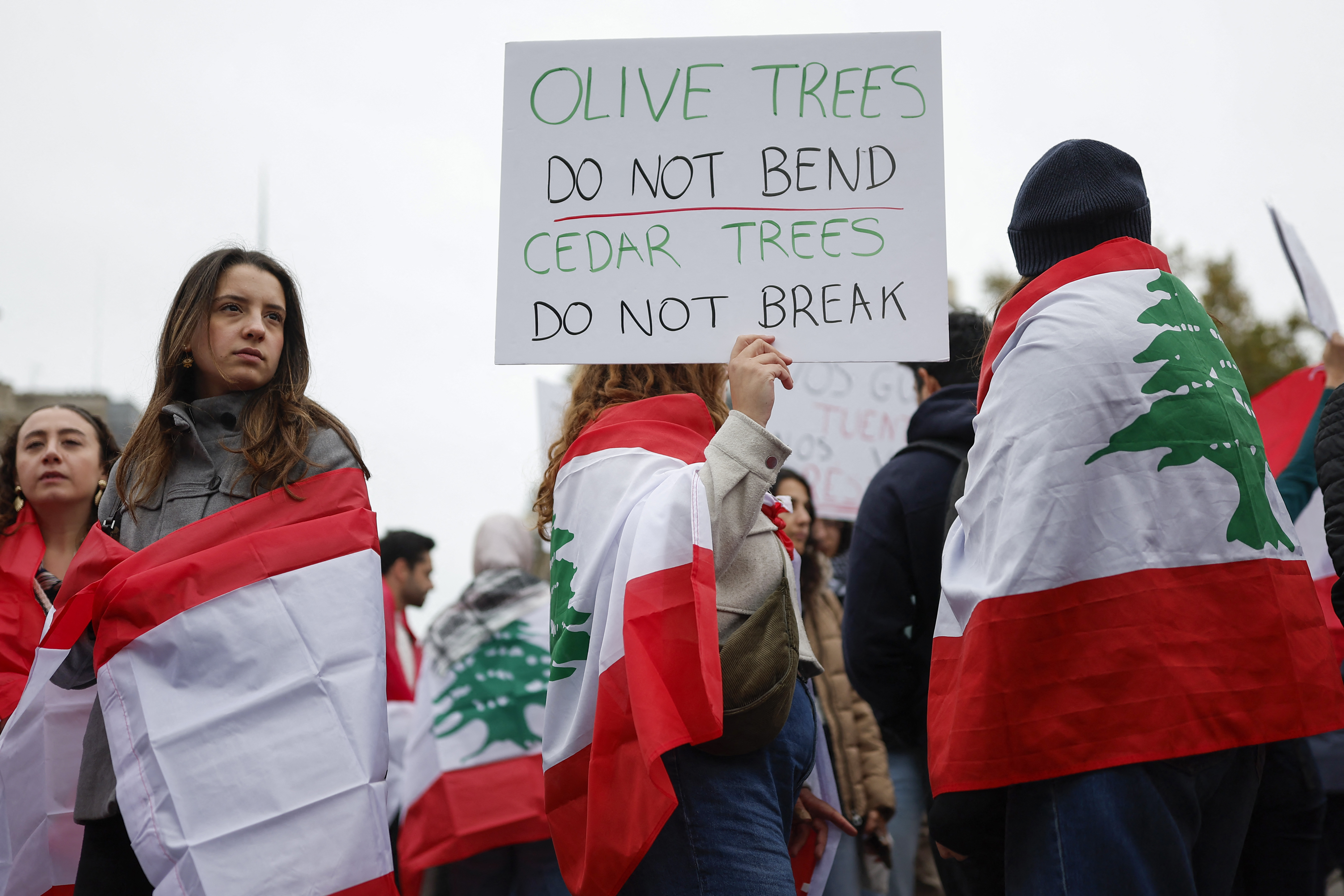Rome/Jerusalem/Beirut — The World Food Program of the United Nations on Sunday said it had launched an emergency operation to provide meals for one million people affected by the escalating conflict in Lebanon.
“A further acceleration of the conflict this weekend underscored the need for an immediate humanitarian response,” the Rome-based agency said in a statement, announcing that it was distributing ready-to-eat food rations, bread, hot meals and food parcels to shelters across the country.
Meanwhile, Lebanon’s health ministry said Israeli air strikes killed 21 people on Sunday in east Lebanon, which has been hit by a wave of attacks for nearly a week.
“The Israeli enemy raids on Baalbek-Hemel have killed 21 people and wounded 47,” the ministry said, giving a provisional toll, as an AFP journalist reported heavy raids Sunday in the Baalbek area.
FRESH ATTACKS
Israel on Sunday said that it was carrying out new air strikes on dozens of Hezbollah targets in Lebanon, two days after killing the Iran-backed group’s leader, Hassan Nasrallah, in bombing raids outside Beirut.
His killing marked a sharp escalation in nearly a year of tit-for-tat cross-border fire between Israel and Hezbollah since the latter’s Palestinian ally Hamas staged its unprecedented attack on Israel on October 7, 2023.
The bombing in Lebanon is “compounding the fragility of a population burdened by accumulated crises”, the WFP said.
“In just a few days, WFP assistance has reached thousands of newly displaced people,” the program’s country director for Lebanon, Matthew Hollingworth, said in the statement.
“As the crisis deepens, we are preparing to assist up to one million people through a mix of cash and food support,” he added, calling on the international community to mobilize US$105 million to fund the operation through to the end of the year.
“Lebanon is at a breaking point and cannot endure another war,” said WFP regional director Corinne Fleischer.
Lebanon’s Prime Minister Najib Mikati on Sunday said his country could be witnessing its largest wave of displacement ever amid intense Israeli air strikes.
“It is the largest displacement movement that may have happened… in Lebanon,” Mikati told reporters, after saying up to one million people could be displaced by the Israeli attacks.

The Israeli military said Sunday evening it hit dozens more Hezbollah targets in Lebanon during a new barrage “a short while ago”, as frequent cross-border air raids continued.
“During the intelligence-based strikes, the (air force) struck approximately 120 Hezbollah terror targets in southern Lebanon and deep inside Lebanese territory,” a military statement said, adding that the targets included Hezbollah’s infrastructure and “significant headquarters used by Hezbollah’s different units”.
WIDE REACH OF ISRAEL
Defence Minister Yoav Gallant said on Sunday that Israel would strike at foes no matter the distance after the military targeted Huthi rebels in Yemen.
“Our message is clear — for us, no place is too far,” Gallant said in a statement issued by his office after he monitored the strikes from an air force command and control room about 2,000 kilometers (1,300 miles) from Yemen.
The Israeli military said on Sunday the strike that killed Hezbollah chief Hassan Nasrallah in Beirut also “eliminated” around two dozen other members of the Lebanese armed group.
“More than 20 other terrorists of varying ranks, who were present at the underground headquarters in Beirut located beneath civilian buildings, and were managing Hezbollah’s terrorist operations against the state of Israel, were also eliminated,” in Friday’s air strike, the military said in a statement that listed some of them.
The dead included, according to the statement, Ibrahim Hussein Jazini and Samir Tawfiq Dib, who the military said were “among Nasrallah’s closest associates” in the Lebanese armed group.
“Due to their proximity to him, they served a significant role in the day-to-day operations of Hezbollah and Nasrallah in particular,” the statement said.
The military in recent days has pounded Hezbollah targets in southern Lebanon and also hit the group’s stronghold in southern Beirut with intensified strikes.
Hezbollah confirmed Nasrallah’s death on Saturday, and on Sunday it said Ali Karake, the group’s top commander in southern Lebanon, was also killed in the Friday attack.
The Israeli military said on Sunday that Abed al-Amir Muhammad Sablini and Ali Naaf Ayoub also died with Nasrallah.

Earlier on Sunday, the military said it had killed Nabil Qaouq, a senior Hezbollah official, in an air strike in a Beirut suburb on Saturday.
Qaouq was a member of Hezbollah’s central council and was considered “to be close to Hezbollah’s senior commanders”, a statement said.
A source close to Hezbollah told AFP that Israel also carried out a strike on Sunday in southern Beirut that targeted Abu Ali Reda, a commander of one of the group’s sectors in southern Lebanon.
Hezbollah said in a statement that Reda was “fine”.
In July Nasrallah said Hezbollah divided its southern Lebanon operations into three areas after its last war with Israel in 2006: the Aziz unit in the west, the Nasr unit in the east, and the Badr unit covering north of the Litani River up to the coastal city of Sidon.
The strike that killed Nasrallah also killed Iranian General Abbas Nilforoushan, a top commander of the Quds Force, the foreign operations arm of the Islamic Revolutionary Guard Corps, Iran said.
In recent days, Israel has shifted the focus of its military operations from Gaza to Lebanon, after nearly a year of low-level cross-border fire with Hezbollah.
The Israeli military has carried out a blistering air campaign it says has targeted not just Hezbollah’s senior leaders, but also its military installations and weapons storage facilities, particularly in southern Lebanon.
Israeli raids on Lebanon last Monday killed at least 558 people, Lebanon’s health ministry said, in the deadliest day of violence since Lebanon’s 1975-90 civil war.
IRAN REACTION
Iran’s Foreign Minister Abbas Araghchi said Sunday that the death of a senior Iranian general, killed alongside Hezbollah chief Hassan Nasrallah in an Israeli strike on Beirut, “will not go unanswered”.
Araghchi’s remarks came two days after the Friday strike on Iran-backed Hezbollah’s bastion in the Lebanese capital that killed General Abbas Nilforoushan, a top commander of the Quds Force, the Islamic Revolutionary Guard Corps foreign operations arm.
“This horrible crime of the aggressor Zionist regime will not go unanswered,” the top diplomat said according to a foreign ministry statement.
“The diplomatic apparatus will also use all its political, diplomatic, legal and international capacities to pursue the criminals and their supporters,” he added.
Iranian officials have strongly condemned the killing of Hezbollah chief Nasrallah, whose powerful Lebanese movement has been armed and financed by the Islamic Republic for years.
On Sunday, Iran’s vice president for strategic affairs, Javad Zarif, said a response “will occur at the appropriate time and at Iran’s choice, and decisions will definitely be made at the leadership level, at the highest level of the state,” official news agency IRNA reported.
Iran’s supreme leader Ayatollah Ali Khamenei, who has the final say in all matters of state, has offered his condolences for Nasrallah’s “martyrdom” and declared five days of public mourning.
Iranians on Sunday took to the streets of several cities across the country to express their anger at the killings of the Guards’ Nilforoushan as well as Hezbollah’s Nasrallah.
The secretary of Iran’s Guardian Council, Ahmad Jannati, said Israel would “receive a forceful answer”, threatening with “the destruction of the Zionist regime,” according to Fars news agency.
FOCUS ON UNITY IN LEBANON
Lebanon’s army on Sunday warned Lebanese against actions that would disturb public order in the crisis-hit country after Israel’s killing of Hassan Nasrallah, leader of the powerful Iran-backed group Hezbollah.
The army in a statement said it “calls on citizens to preserve national unity and not to be drawn into actions that may affect civil peace at this dangerous and delicate stage”, following the massive Friday strike that killed Nasrallah and as Israeli attacks continue.
“The Israeli enemy is working to implement its destructive plans and sow division among Lebanese,” the army statement added.
Tiny Lebanon has long been divided along sectarian lines and witnessed a devastating 1975-1990 civil war.
Hezbollah, the Shiite Muslim movement that wields great power in Lebanon and whose military might is widely believed to dwarf Lebanon’s armed forces, has drawn criticism from some Lebanese politicians over its decision to open a “support front” against Israel over the Gaza war nearly a year ago.
A Lebanese army official told AFP troops had been deployed since Saturday in Beirut, where thousands have sought refuge from intense Israeli raids on Lebanon’s south and east and on Hezbollah’s south Beirut bastion.
Prime Minister Najib Mikati urged Lebanese “to come together” to preserve civil order.
“Our national responsibility at this historic and exceptional moment requires setting aside political differences,” he said on Saturday, after cutting short a New York trip.

United Nations special coordinator for Lebanon Jeanine Hennis-Plasschaert also called for unity in a statement on X on Sunday.
“At this critical moment for Lebanon when uncertainty is rife, now is the time for the country to focus on the common interest that unites its people,” she said.
Even the parties traditionally opposed to the powerful Iran-backed group have refrained from making fiery statements following Nasrallah’s killing.
The Lebanese Forces, a Christian party widely viewed as one of Hezbollah’s fiercest critics, even ordered supporters to go “radio silent” on social media in a message circulated on their groups, a source close to the party told AFP.
On Saturday, former prime minister Saad Hariri called on Lebanese to “rise above differences”, adding that Nasrallah’s killing “has plunged Lebanon and the region into a new phase of violence”.
An international court had found that Hezbollah operatives were behind the 2005 killing of his father Rafic Hariri, also a former Lebanese premier.
Hezbollah began exchanging cross-border fire with Israel in support of ally Hamas a day after the Palestinian militant group’s unprecedented October 7 attack on Israel, which triggered war in Gaza.
Israel has over the past few days shifted the focus of its operation from Gaza to Lebanon, where heavy bombing since Monday has killed hundreds of people and displaced tens of thousands.








